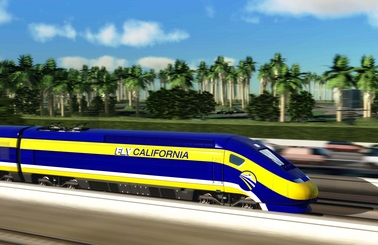
California has reason to be optimistic that the state's proposed high-speed rail project, due to begin construction next year, can prove to be a viable transportation alternative from environmental and sustainability standpoints.
New research by Mikhail Chester, an assistant professor in the School of Sustainable Engineering and the Built Environment and Arpad Horvath, a University of California, Berkeley engineer compared the future sustainability of a high-speed rail with that of competing modes of transportation, namely automobiles and air travel.
They determined that in terms of energy consumption and greenhouse gas emissions, a mature high-speed rail system wins out when it deploys state-of-the-art trains powered by greener electricity. This was true even after accounting for the emergence of more fuel-efficient airplanes and automobiles.